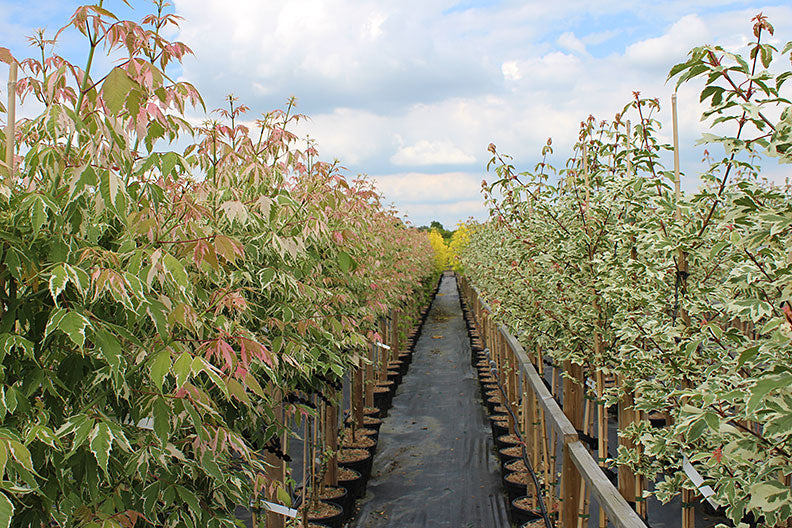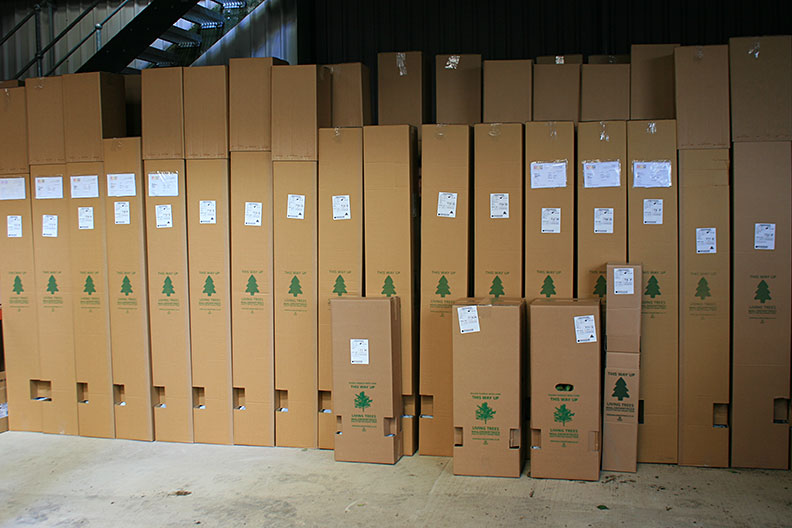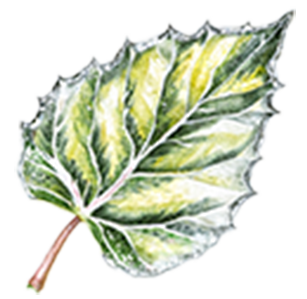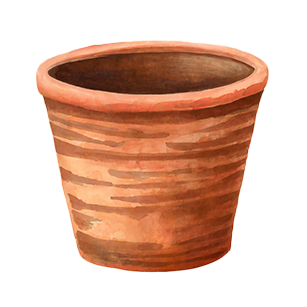





Guarantee
Shipping
Here at Mail Order Trees, getting your trees and plants to you quickly and in perfect condition is our top priority. A great feature of our specially designed cardboard boxes is that they are 100% recyclable, which will help to reduce your carbon footprint even further.
We have a standard flat rate charge of £9.95 per consignment (including VAT) to England and Wales so the more you buy, the more you save! Prices for Scotland, Grampian, the Highands can be calculated in the checkout area. Unfortunately we are unable to ship to any other locations aside from these. This means we do not ship to Isle of Wight, Channel Islands, Northern Ireland/Ireland and any Scottish Islands.
Our usual delivery time is up to 7-10 working days. We will, as ever, aim to stick to our usual timescale but please be aware that this may not always be possible. Please take the time to fill out the special instructions box in the checkout area with the details of a neighbour or safe place that your trees can be left. Every effort will be made to make deliveries in this time or on a date requested by you.
Mail-Order-Trees cannot be held responsible for delayed deliveries due to factors beyond our control such as Public Holidays or adverse weather conditions which make it impossible to lift bare-rooted trees. In cases such as these, you will be notified.
We can only deliver to physical addresses and not to PO boxes. A complete address including correct postcode must be provided. Incorrect postcodes cause more delays than omitting the postcode altogether.
Mail-Order-Trees cannot be held responsible for orders not received if an incorrect address is provided. It will also be necessary to give us details of where to place items should you be out when the delivery arrives. Mail-Order-Trees cannot be responsible for items lost if we have followed your instructions. A contact telephone number can also be very useful to our courier.



Acacia dealbata provides a vibrant burst of sunshine during the winter months as its highly distinctive flowers appear in January. The flowers resemble small, fluffy spheres and they are golden yellow in colour; they are highly fragrant and their sweet scent can be a real treat for the senses over the winter months.
In fact, the essence of the flowers, called ‘cassie’, is used in perfumes and fragrances around the world. Aside from human uses, bees and insects love the Mimosa flowers too, and it’s a valuable source of late winter fuel for the bees in particular.
Aside from the floral interest, the foliage offers a healthy dose of year-round colour. The pinnate leaves are large with feathery leaflets: the foliage colour is a glaucous blue-green, but can sometimes be silvery green. The leaves make the perfect foil for the vibrant winter flowers.
In terms of its habit, the Acacia dealbata will grow to have widely spaced branches and it will become a small-medium sized tree. This Australian native is half-hardy, so it will need some protection in exposed sites. An ideal situation would be to plant it in a sheltered spot against a south-facing wall for optimum protection.
If you want a planting partner, we would recommend the Eucalyptus Gunnii as it also has glaucous blue foliage. Equally, the Cytisus Battandieri works really well due to its vivid floral summer display, as you get bright yellow flowers in winter from the Acacia and vibrant yellow flowers in summer from the Cytisus.
Common Name: Mimosa or Silver Wattle
Latin Name: Acacia dealbata
Special features: An interesting small evergreen tree with small, yellow, fluffy balls.
Height in 20 Years:

Width in 20 Years:

Growth Habit:

Planting Position:

Weather Exposure:

Hardiness:






Soil Type:

Soil Ph:


Special Features: